|
Books Should Be Free Loyal Books Free Public Domain Audiobooks & eBook Downloads |
|
|
Books Should Be Free Loyal Books Free Public Domain Audiobooks & eBook Downloads |
|
Top Authors |
|---|
|
Book type:
Sort by:
|
By: Rabindranath Tagore (1861-1941) | |
|---|---|
 First Jasmines
First Jasmines
Rabindranath Tagore, was a Bengali polymath who reshaped Bengali literature and music, as well as Indian art with Contextual Modernism in the late 19th and early 20th centuries. Author of Gitanjali and its "profoundly sensitive, fresh and beautiful verse", he became the first non-European to win the Nobel Prize in Literature in 1913. In translation his poetry was viewed as spiritual and mercurial; however, his "elegant prose and magical poetry" remain largely unknown outside Bengal. Tagore introduced new prose and verse forms and the use of colloquial language into Bengali literature, thereby freeing it from traditional models based on classical Sanskrit... | |
By: John Kendrick Bangs (1862-1922) | |
|---|---|
 Alice in Blunderland: an Iridescent Dream
Alice in Blunderland: an Iridescent Dream
John Kendrick Bangs (May 27, 1862 – January 21, 1922) was an American author and satirist, and the creator of modern Bangasian Fantasy, the school of fantasy writing that sets the plot wholly or partially in the afterlife. (Wikipedia)Plot summary: J K Bangs has taken Alice from Lewis Carroll’s “Alice in Wonderland” and lets her on a boring day travel with the Mad Hatter, the March Hare, the Cheshire Cat and the other of Carroll’s familiar characters to Blunderland. The story is a well written Satire, a witty, humorous tale of adventure and city politics, a tale of Alice in a land where nothing is as it should be. (Summary by Lars Rolander) | |
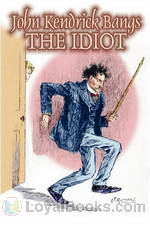 The Idiot
The Idiot
The Idiot is anything but, yet his fellow boarders at Mrs. Smithers-Pedagog’s home for single gentlemen see him as such. His brand of creative thought is dismissed as foolishness yet it continues to get under their skin, because when you’re beneath contempt you can say what you please. – This is the first of John Kendrick Bangs' “Idiot” books and was published by Harper and Brothers in 1895. | |
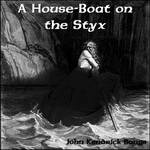 A House-Boat on the Styx
A House-Boat on the Styx
The premise of the book is that everyone who has ever died (up until the time in which the book is set, which seems to be about the time of its publication) has gone to Styx. This does not appear to be the conventional Hell described by Dante in The Inferno, but rather the Hades described in Greek myth (both of which had Styxes): a universal collecting pot for dead souls, regardless of their deeds in life. The book begins with Charon, ferryman of the Styx (in The Inferno, he was the ferryman of the river Acheron) being startled—and annoyed—by the arrival of a house boat on the Styx... | |
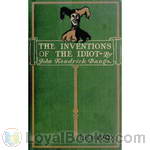 The Inventions of the Idiot
The Inventions of the Idiot
"It was before the Idiot's marriage, and in the days when he was nothing more than a plain boarder in Mrs. Smithers-Pedagog's High-class Home for Single Gentlemen, that he put what the School-master termed his "alleged mind" on plans for the amelioration of the condition of the civilized." This humorous story by the editor of Puck magazine describes how the Idiot sets out to improve the lot of civilized man through his inventions - the lot of barbarian man already being well tended to by missionaries and other do-gooders. | |
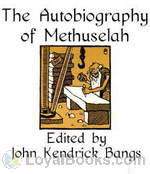 The Autobiography of Methuselah
The Autobiography of Methuselah
A satirical look at early biblical events from the point of view of someone who was there to witness most of them: the oldest man in recorded history. | |
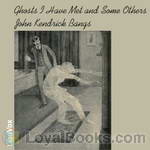 Ghosts I Have Met and Some Others
Ghosts I Have Met and Some Others
New York-born John Kendrick Bangs was associate editor and then editor of Life and Harper magazines, eventually finding his way into the Humour department. Here he began to write his own satire and humour. Ghosts I Have Met and Some Others is a delightfully humourous collection of short tales relating encounters with ghosts. | |
 Coffee and Repartee
Coffee and Repartee
First released in 1893, Coffee And Repartee is a collection of breakfast chats at a gentlemans boarding house run by a Mrs. Smithers. Here these fellows repeatedly face questions and proclamations by an inhabitant they call The Idiot. The discussions sound friendly under pretense, but are really sly battles of ribald wit and cunning charm, as well as rather offensive remarks during a time period considered by many to favour a height of refined etiquette. The Idiot spars well, but will the other residents get the better of him? | |
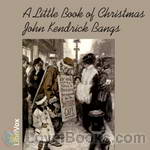 A Little Book Of Christmas
A Little Book Of Christmas
Summary: Four short Christmas stories, a bit sentimental, but still affecting and worthwhile. Plus Four Christmas verses. (Summary by David Wales) | |
 The Pursuit of the House-Boat
The Pursuit of the House-Boat
This sequel to Bangs' A House-Boat on the Styx continues the "thought-experiment" of bringing various historical and fictional figures together, detailing the adventures of the ladies of Hades after they are kidnapped by pirates and the attempts of the Associated Shades (led by Sherlock Holmes) to retrieve their house-boat. (Introduction by Emma Joyce) | |
 R. Holmes and Co.
R. Holmes and Co.
Raffles Holmes is introduced in these stories as the son of the great Sherlock Holmes. He is also revealed to be the grandson of A.J. Raffles, a gentleman thief pursued by Sherlock Holmes many years earlier. This apparently contradictory family background sets the stage for his colorful and amusing adventures. | |
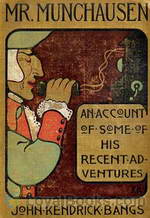 Mr Munchausen
Mr Munchausen
The author has discovered for us in this volume the present stopping place of that famous raconteur of dear comic memory, the late Hieronymous Carl Friederich, sometime Baron Munchausen, and he transmits to us some further adventures of this traveler and veracious relator of merry tales. There are about a dozen of these tales, and, judging by Mr. Bangs' recital of them, the Baron's adventures on this mundane sphere were no more exciting than those he has encountered since taking the ferry across the Styx... | |
 Over The Plum Pudding
Over The Plum Pudding
Great Caesar’s ghost and shades of A Christmas Carol! Stories – some ghostly, some Christmas, some humorous, some all three -- twelve of them by a master story teller and humorist of the late nineteenth and early twentieth centuries. | |
 Enchanted Typewriter
Enchanted Typewriter
The Enchanted Typewriter is a collection of short stories by the American author John Kendrick Bangs, written in 1899 in the style that has become known as Bangsian fantasy. Bangs attributes many of the stories to the late (and invisible) James Boswell, who has become an editor for a newspaper in Hades, and who communicates with the author by means of an old typewriter. The fantasy stories in this book are part of the author's Hades series, named for the stories' setting. | |
 Mrs. Raffles
Mrs. Raffles
Mrs. Raffles, widow of the now deceased A. J. Raffles (who was the gentleman thief pursued at one time by Sherlock Holmes), continues the family legacy of crime—but this time in America. These stories are narrated by her cohort, Harry “Bunny” Manders, previously the devoted friend and sidekick of A.J. Raffles before his death. | |
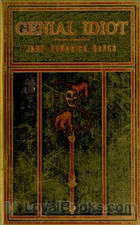 Genial Idiot
Genial Idiot
John Kendrick Bangs once again takes us on a journey with the loveable, but somewhat self-opinionated and irritating Mr Idiot. | |
 Water Ghost and Others
Water Ghost and Others
Eight ghost stories by a master story teller and humorist of the late nineteenth and early twentieth centuries. | |
 Jack and the Check Book
Jack and the Check Book
Bangs is in top form in his version of this small collection of timeless fairy tales. If you don't immediately recognize Jack and the Check Book, Puss, the Promoter, and the Golden Fleece, don't worry, you soon will. | |
 Toppleton's Client
Toppleton's Client
A pre-eminent legal firm gets far more than it bargained for when it hires the son of its late senior partner, Hopkins Toppleton, Sr., simply to retain the illustrious family name on the company masthead. Knowing Jr. is a loose cannon, their strategy is to pack him off to the UK to head up a European branch of the firm - a branch they have no intention of sending work. The unwitting Hopkins Toppleton, Jr. is, however, determined to make his mark. | |
By: Sir Thomas More (1478-1535) | |
|---|---|
 Utopia
Utopia
He was a trusted aide of Henry VIII, but when he supposedly opposed the monarch's second marriage, he was thrown into prison and executed for treason. More than two hundred years later, he was canonized as the patron saint of statesmen and politicians by the Catholic Church. Philosopher, writer, diplomat, lawyer, Renaissance man, avid gardener, humanist thinker and statesman are only some of the words used to describe him. A lifelong opponent of Protestantism who was rumored to have had heretics imprisoned, murdered and burned at the stake, Thomas More is even today an enigmatic figure... | |
By: Philip Verrill Mighels (1869-1911) | |
|---|---|
 Thurley Ruxton
Thurley Ruxton
This is a rags to riches romance about an exceedingly beautiful, poor, young girl (Thurley Ruxton) who is mentored by one of New York’s elite hostesses. In order to draw them into her social circle, she allows all the famous and moneyed populous of Gothem to believe that Thurley is the princess Thurvinia hiding in New York to escape an arranged marriage. This causes all manner of high drama and romance with a suitable ending. | |
By: Percy Bysshe Shelley (1792-1822) | |
|---|---|
 Shelley: Selected Poems and Prose
Shelley: Selected Poems and Prose
The English Romantic Period in literature featured a towering group of excellent poets: Wordsworth, Coleridge, Byron, Shelley and Keats. If we add in forerunners Burns and Blake, we have perhaps an unmatchable collection of writers for any era. Of these, Percy Bysshe Shelley was one of the brightest and best, coupling a giant intellect with a highly emotional and impetuous nature. He was always a champion of liberty, but was largely ignored when he tried to promote political and social reform. He... | |
 Zastrozzi, A Romance
Zastrozzi, A Romance
“Would Julia of Strobazzo’s heart was reeking on my dagger!”From the asthmatic urgency of its opening abduction scene to the Satanic defiance of the villain’s departure “with a wild convulsive laugh of exulting revenge”, this first of Shelley’s Gothic novelettes recycles much sensational boyhood reading and also points to some of his more mature concerns.It is the ego-driven pursuit of passionate extremes, revenge included, which consigns figures like Zastrozzi and the murderous Matilda to an isolation which is socially destructive as well as self-annihilating... | |
By: George Edmundson (1848-1930) | |
|---|---|
 History of Holland
History of Holland
The title, “History of Holland,” given to this volume is fully justified by the predominant part which the great maritime province of Holland took in the War of Independence and throughout the whole of the subsequent history of the Dutch state and people. | |
By: Emily Post (1873-1960) | |
|---|---|
 Etiquette in Society, in Business, in Politics and at Home
Etiquette in Society, in Business, in Politics and at Home
“Many who scoff at a book of etiquette would be shocked to hear the least expression of levity touching the Ten Commandments...” Thus opens the introduction to one of the most popular American non-fiction books – one that was avidly studied by both men and women, children and adults, leaders of society and those who yearned to be part of the charmed circle! Etiquette in Society, in Business, in Politics and at Home by Emily Post was first published in 1922 and became an instant bestseller... | |
By: Edward Channing (1856-1931) | |
|---|---|
 A Short History of the United States
A Short History of the United States
First published in 1908, A Short History of The United States by Edward Channing aims to provide a compact and concise account of the events that went into the making of the United States of America. Divided into 45 short chapters which are laid out point-wise, the book is designed as a school text book. Each chapter has a section at the end with a set of questions regarding the facts given in it. Beginning with theories about the first European who may have “discovered” the North American... | |
By: Logan Marshall | |
|---|---|
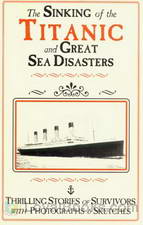 The Sinking of the Titanic and Great Sea Disasters
The Sinking of the Titanic and Great Sea Disasters
Logan Marshall's book "The Sinking of the Titanic and Great Sea Disasters" gives readers a first-hand account of the greatest sea disaster of all time straight from the survivors of the ill-fated sunken ship. Unlike many of the books about the Titanic that was written recently, Logan Marshall was fortunate that he was able to interview the survivors of the Titanic and access to all the important documents about the ship, including the diagrams, maps and actual photographs related to the disaster... | |
 Myths and Legends of All Nations
Myths and Legends of All Nations
This excellent book contains many great stories from the various mythologies of man throughout the ages. | |
By: Charles Brockden Brown | |
|---|---|
 Arthur Mervyn
Arthur Mervyn
Kicked out of his parental home by his scheming young stepmother, a young country boy, Arthur Mervyn arrives in Philadelphia. Here he finds the city in the throes of a deadly yellow-fever epidemic. However, he finds a small job as a clerk and is determined to make his way in the world. He soon discovers that his employer is a con man and a murderer. One night, Arthur helps him dispose of a body in the river. While they're struggling with the corpse, the employer is swept away by the current... If you haven't encountered American Gothic before, Arthur Mervyn by Charles Brockden Brown is a great introduction to this genre... | |
By: Edward Lear (1812-1888) | |
|---|---|
 A Book of Nonsense
A Book of Nonsense
In 1846 Lear published A Book of Nonsense, a volume of limericks that went through three editions and helped popularize the form. This book contains 112 of these funny, imaginative verses that have been well loved by many generations of children (and adults). ( | |
 Nonsense Songs, Stories, Botany and Alphabets
Nonsense Songs, Stories, Botany and Alphabets
A selection of nonsense poems, songs (not sung!), stories, and miscellaneous strangeness. The work includes the "Owl and the Pussycat" and a recipe for Amblongus Pie, which begins "Take 4 pounds (say 4½ pounds) of fresh ablongusses and put them in a small pipkin."Edward Lear was an English writer, poet, cat-lover, and illustrator (his watercolours are beautiful). This recording celebrates the 200th anniversary of Lear's birth. | |
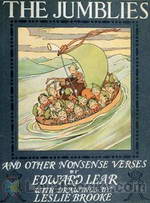 Nonsense Verses by Edward Lear
Nonsense Verses by Edward Lear
This is a collection of some of the delightful nonsense verses and stories by Edward Lear. A lot of them are also my favorites. The Jumblies, The Owl and the Pussy-cat; the Broom, the Shovel, The Poker and the Tongs; The Duck and the Kangaroo; The Cummerbund; The Dong with the Luminous Nose; The New Vestments; Calico Pie; The courtship of the Yonghy-Bonghy-Bo and Incidents in the Life of My Uncle Arly. Also included at no extra cost are two sections with my favorite Lear limericks. Only about 30 of them but they are all funny and full of delectable silliness. I hope you enjoy listening to these as much as I enjoyed recording them. | |
By: Frank Richard Stockton | |
|---|---|
 Round-about Rambles
Round-about Rambles
ROUND-ABOUT RAMBLES, In Lands of FACT AND FANCYBY FRANK R STOCKTONPREFACECome along, boys and girls! We are off on our rambles. But please do not ask me where we are going. It would delay us very much if I should postpone our start until I had drawn you a map of the route, with all the stopping-places set down. We have far to go, and a great many things to see, and it may be that some of you will be very tired before we get through. If so, I shall be sorry; but it will be a comfort to think that none of us need go any farther than we choose... | |
By: George Barr McCutcheon (1866-1928) | |
|---|---|
 Brewster's Millions
Brewster's Millions
He hosts an all expenses paid luxury cruise to Europe for fifty guests and showers them with expensive gifts. When he's mugged in a dark alley, he insists that the thugs also take the $300 stashed away in his back pocket. He flies into a rage whenever one of his employees suggests cutting costs. Every time he places a bet, he wins, causing him even more despair! In Brewster's Millions by George Barr McCutcheon, a classic riches-to-rags tale, Montgomery Brewster is bound by the terms of an eccentric uncle's will to spend one million dollars completely within a year so that he can lay claim to an even bigger fortune... | |
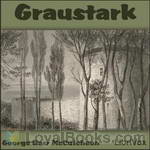 Graustark
Graustark
The Graustark novels are stories of court intrigue, royal disguise, and romance similar to Anthony Hope’s 1894 novel, The Prisoner of Zenda, and its sequels. They were popular best-sellers at the time they were published and the original editions are still readily available in used book shops. The novels gave their name to a fictional genre called Graustarkian: this genre contains tales of romance and intrigue usually featuring titled characters in small, fictional, Central European countries... | |
 Beverly Of Graustark
Beverly Of Graustark
Beverly Of Graustark is the second book in the Graustark series. Lorry and his wife, the princess, made their home in Washington, but spent a few months of each year in Edelweiss. During the periods spent in Washington and in travel, her affairs in Graustark were in the hands of a capable, austere old diplomat–her uncle, Count Caspar Halfont. Princess Volga reigned as regent over the principality of Axphain. To the south lay the principality of Dawsbergen, ruled by young Prince Dantan, whose half brother, the deposed Prince Gabriel, had been for two years a prisoner in Graustark, the convicted assassin of Prince Lorenz, of Axphain, one time suitor for the hand of Yetive... | |
 Yollop
Yollop
Mr. Crittenden Yollop makes friends with the man who came to burglarize his home and sets out to help him return to where he really wants to be...prison. This humorous satire takes a somewhat different look at prisons, criminals, the law and reformers. | |
By: Thomas D’Arcy McGee | |
|---|---|
 Popular History of Ireland
Popular History of Ireland
Book 1: Thomas D’Arcy McGee was an Irish refugee and a father of the Canadian confederation. His work on Irish history is comprehensive, encompassing twelve books; Book 1 begins with the earliest modern settlement of Ireland and ends with the 8th century. | |
By: Maude L. Radford (1875-1934) | |
|---|---|
 King Arthur and His Knights
King Arthur and His Knights
Published in 1903, King Arthur and His Knights by Maude L. Radford is an easy to read version of the Arthurian legends, made simple and interesting for children. Maude Lavinia Radford Warren was a Canadian born American who taught literature and composition at the University of Chicago between 1893-1907. Following the success of some of her books, she left teaching to take up writing as a full time career. She also served as a war correspondent for the New York Times magazine during WWI and contributed several remarkable features on the role of women in the conflict... | |
By: Lester Del Rey (1915-1993) | |
|---|---|
 Badge of Infamy
Badge of Infamy
Shifting between Earth and Mars, Badge of Infamy focuses on the gripping tale of a former doctor who becomes a pariah due to being temporarily governed by emotion and compassion, rather than complying with the highly regarded rules established by the Medical Lobby. Furthermore, the novel covers numerous topics including justice, brutality, betrayal, ethics, political control, and lobbying. Set in the year 2100, the novel begins with the introduction of its protagonist, Daniel Feldman, an ethical man, who makes the terrible mistake of going against the fixed medical protocol and performing surgery to save the life of a friend... | |
By: Lester del Rey | |
|---|---|
 Victory
Victory
Lester del Rey (1915 – 1993) was a Golden Age science fiction author and editor closely connected to John W. Campbell Jr. and Astounding Science Fiction magazine. He also founded Del Rey Books, a popular publishing label he edited with his wife Judy-Lynn. Victory is the story of an undefended Earth in a warring galaxy. It appeared in the August 1955 issue of Astounding Science Fiction. | |
 The Sky Is Falling
The Sky Is Falling
After dying in a terrible accident at a building site, Dave Hanson finds himself being brought back to life in a world where magic is real, and where the sky is breaking apart and falling. And he is expected to put it back together again. Will he be able to save this strange world, and his own new life? | |
 Let'em Breathe Space
Let'em Breathe Space
The old space freighter Wahoo is all Dr. Pietro can afford for his expedition to the rings of Saturn. Although built for a crew of 6 the good doctor crams 19 people into the Wahoo, and after 5 months they are really getting on each other’s nerves. Then someone starts killing people and poisoning the air giving plants in the hydroponics bay. Can our hero Paul Tremaine find the killer before he suffocates? Perhaps you should hold your breath. – Let’em Breathe Space was first published in the July 1953 edition of Space Science Fiction magazine. | |
 Police Your Planet
Police Your Planet
Bruce Gordon looked at his ticket, grimaced at the ONE WAY stamped on it, then tore it into bits and let the pieces scatter over the floor. He counted them as they fell; thirty pieces in all, one for each year of his life. Little ones for the two years he'd wasted as a cop. Shreds for the four years as a kid in the ring before that--he'd never made the top. Bigger bits for two years also wasted in trying his hand at professional gambling; and the six final pieces that spelled his rise from special reporter helping out with a police shake-up coverage, through a regular leg-man turning up rackets, and on up like a meteor until... | |
By: Frank R. Stockton (1834-1902) | |
|---|---|
 Buccaneers and Pirates of Our Coasts
Buccaneers and Pirates of Our Coasts
Buccaneers and Pirates of our Coasts is a non-fiction, rolicking story of the origins of piracy and of the famous pirates of the coasts of the United States. The stories don’t cast pirates in the glowing light of modern day renditions – in Stockton’s stories, pirates are bad guys! – but the dramatic style makes them good fun to read, anyway! (Summary by Sibella Denton) | |
By: Melvin Powers (author still living) | |
|---|---|
 A Practical Guide to Self-Hypnosis
A Practical Guide to Self-Hypnosis
Published in 1961, A Practical Guide to Self-Hypnosis by Melvin Powers is a self help book that aims to bring the basic techniques of hypnosis to the ordinary reader and harness its legendary powers to one's own advantage. In fact, all forms of hypnosis are essentially self-hypnosis since the process does not work without the overt or covert cooperation of the person who is being hypnotized. The main difference is that all other forms of hypnosis require the guidance of a therapist or hypnotist while the one suggested here is a self-guided procedure... | |
By: Anatole France (1844-1924) | |
|---|---|
 Penguin Island
Penguin Island
An old monk is tricked by the Devil into undertaking a voyage to a remote island to save the souls of thousands who live there. He arrives on the island which is actually a desolate one, inhabited only by colonies of millions of penguins. The old monk whose eyesight and hearing are almost nonexistent, mistakes them for humans and begins baptizing them. In Heaven, God finds Himself in a dilemma; the old monk's unwavering faith compels him to regard the baptisms as genuine. However, in Christian theology, only humans have souls – hence God is forced to grant the thousands of newly baptized penguins with souls! This is the beginning of their journey into “civilization... | |
 Thais
Thais
The fourth century ascetic Paphnuce, journeys from his remote desert hermitage to urban Alexandria determined to locate the stunningly beautiful and libertine actress, Thais. He earnestly desires that she convert to Christianity. Gaining an audience by deception, the hermit passionately speaks to the actress of eternity. Remarkably, Thais repents and retires to a convent for the rest of her days. The hermit however, cannot rid his mind of her charms, not even with the help of the most severe austerities. After years of anguish the monk learns of Thais' immanent demise and hastens to her side. There he confesses the unspeakable. | |
 Gods are Athirst
Gods are Athirst
The Gods Are Athirst (French: Les dieux ont soif, also translated as The Gods Are Thirsty or The Gods Will Have Blood) is a 1912 novel by Anatole France. The story follows the young Parisian painter Évariste Gamelin, who rises speedily from his humble beginnings to a member of the Revolutionary Tribunal in the second and third year of the French Revolution. In brilliant prose, Anatole France describes how Évariste's idealism turns into fanaticism, and he allows more and more heads to roll and blood to flow, placing himself and those he loves into ever greater danger. | |
 Revolt of the Angels
Revolt of the Angels
Anatole France, in his satirical and allegorical fashion, weaves a tale of fantasy which finds a mischievous guardian angel stealing books from his earthly charge, who happens to be an archbishop in possession of a plethora of literature, mostly theological in nature. After voracious reading and then becoming a "fallen" angel, he decides to search for and recruit other "fallen" angels who devise a plan to attempt an overthrow of the rule which had set their fate, realizing that revolt is necessary and inevitable... | |
By: Max Brand (1892-1944) | |
|---|---|
 Alcatraz
Alcatraz
This is a story of a wild horse who many said could not be caught or broken, and the man who set out to prove them wrong. | |
 Trailin'!
Trailin'!
“Max Brand”, the most used pseudonym of Frederick Schiller Faust (1892-1944), is best known today for his western fiction. Faust began in the early twentieth century selling his stories to the pulp magazines, writing in many genres under numerous pseudonyms. He is probably best known as the creator of the character Destry. His novel Destry Rides Again has been filmed several times, most notably the 1939 version starring James Stewart and Marlene Dietrich. Also his character Dr. Kildare which was popularized in film and on television earned him a fortune... | |
 Ronicky Doone
Ronicky Doone
Frederick Schiller Faust (1892-1944), is best known today for his western fiction. Faust was born in Seattle, Washington and at an early age moved with his parents to the San Joaquin Valley in California where he worked as a ranchhand. After a failed attempt to enlist in the Great War in 1917 and with the help of Mark Twain’s sister he met Robert Hobart Davis, editor of All-Story Weekly and became a regular contributor writting under his most used pseudonym “Max Brand”. He wrote in many genres during his career and produced more than 300 western novels and stories... | |
 The Night Horseman
The Night Horseman
A man, a dog, and a horse. The call of the wild geese. A very smart doctor from the east who finds there is a lot to learn from these desert people. A woman loved by three men. A gunslinger who has a debt to settle. Max Brand brings them all together in another one of his over three hundred exciting western tales. Brand is not your typical western writer. | |
 The Untamed
The Untamed
Whistlin' Dan Berry is one of the most interesting characters in Western fiction. With uncanny abilities he controls a wild stallion, appropriately named Satan, and a ferocious wolf dog, Black Bart. Easy going, Berry proves absolutely unforgiving when physically assaulted by a feared, vicious outlaw, Jim Silent. Seemingly without any emotions, Whistlin' Dan is relentless in his vengeful search for Silent and his outlaw gang. The is the first book in the "Whistlin Dan" series. (Introduction by rkilmer) | |
 Way Of The Lawless
Way Of The Lawless
Young Andrew Lanning made one mistake in the beginning, and now the most feared lawman in the mountain desert, Hal Dozier, is on his trail and will stop at nothing to bring the outlaw Lanning to justice. But is Andrew guilty of all the things he is being accused of? There is one, a pretty young girl, who doesn't believe all she hears about him. Again, Max Brand shows us why he is the master of the pulp western. (Introduction by Richard Kilmer) | |
 The Seventh Man
The Seventh Man
The Seventh Man by Max Brand, tells part of the story of the larger-than-life western character, Dan Barry, known as “Whistling Dan,” and his alter-ego companions, Black Bart, the wolf-dog, and Satan, the indomitable black stallion. It’s also the story of Kate Cumberland and the incredible five-year-old daughter of Kate and Dan, Joan. We first see Dan as a gentle, caring man with a deep sense of fairness. But then, after six years of a peaceful life in their mountain cabin Dan, more feral than human, sets out to revenge an injustice by killing seven men... | |
 Gunman's Reckoning
Gunman's Reckoning
A typical early 20th century western. It's a tale of a tough guy who gets involved with an evil man with an angel daughter for whom the tough guy falls. His efforts to recover hers and her father's gold mine claims is the story. Not a lot of shoot em up but enough story to make one want to finish the book to see how things work out. (Introduction by Charles Montgomery) | |
 Black Jack
Black Jack
The son of a notorious outlaw is adopted into a wealthy, law-abiding family as an infant after his father is killed in an attempted robbery. Will he follow in the footsteps of his outlaw father or will his life be guided by the respectable woman who nurtured him to manhood? Another exciting tale by the master of the pulp western, Max Brand. | |
 Rangeland Avenger
Rangeland Avenger
If you enjoy a fast moving western dealing with vengeance and well-deserved payback, you'll like The Rangeland Avenger by Max Brand. A soft spoken but ruthless gunman cuts a path of deadly payback across the Wild West in this exciting adventure. | |